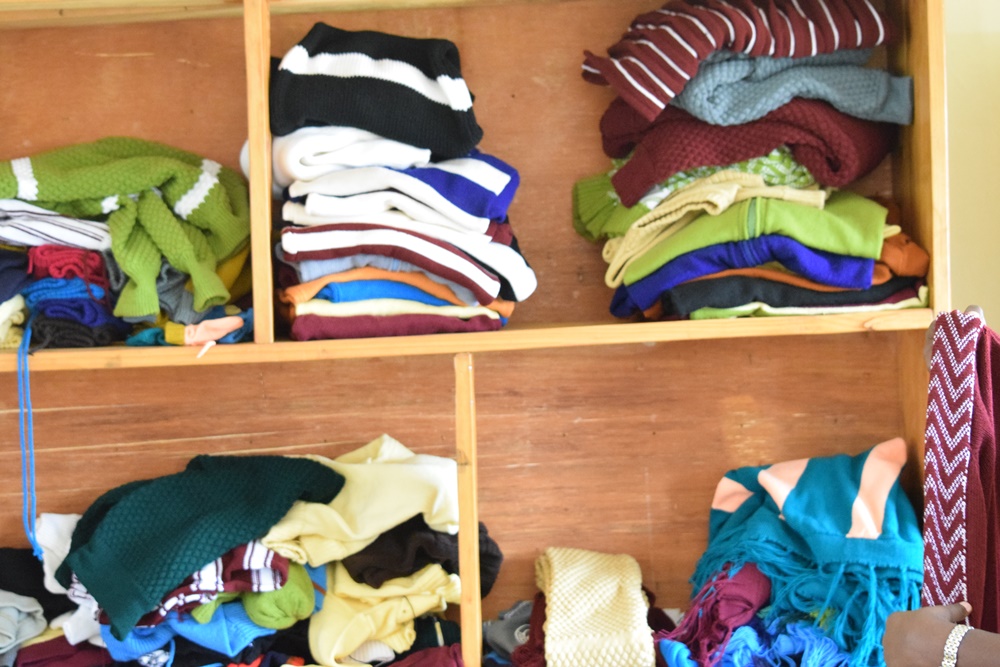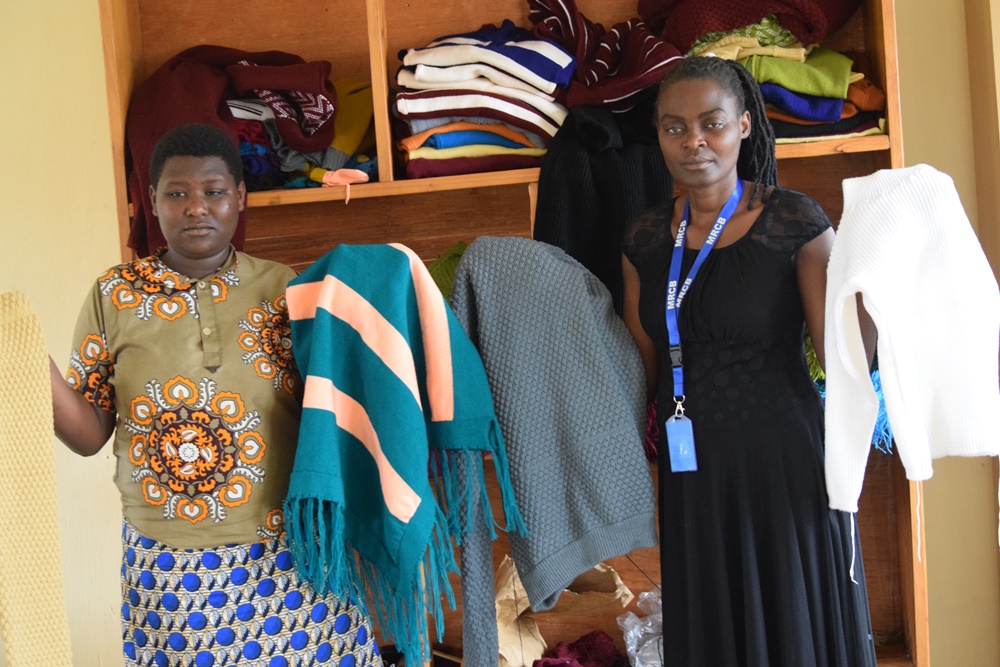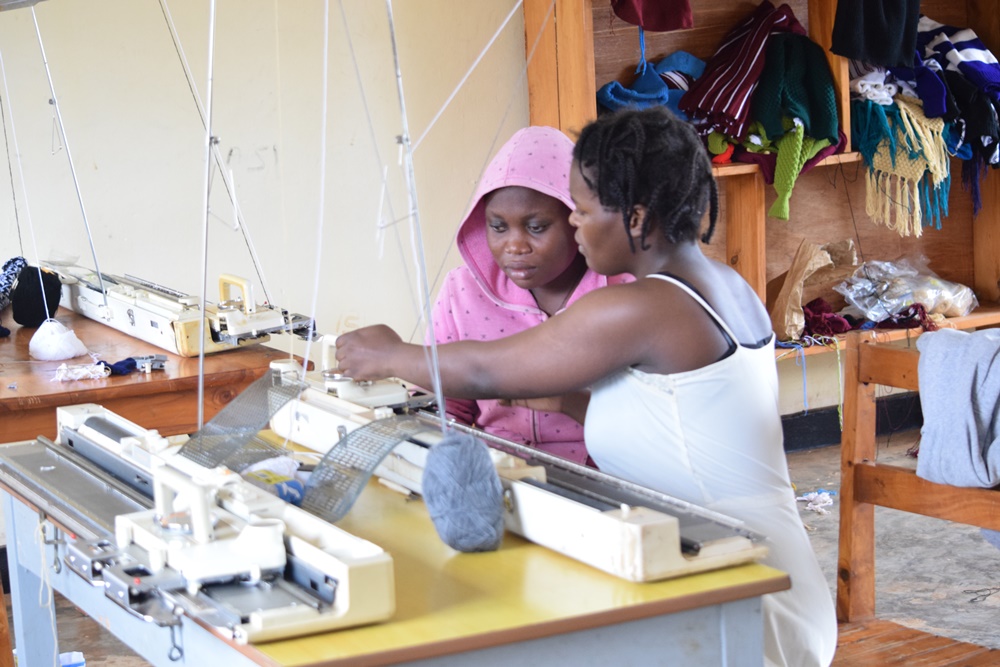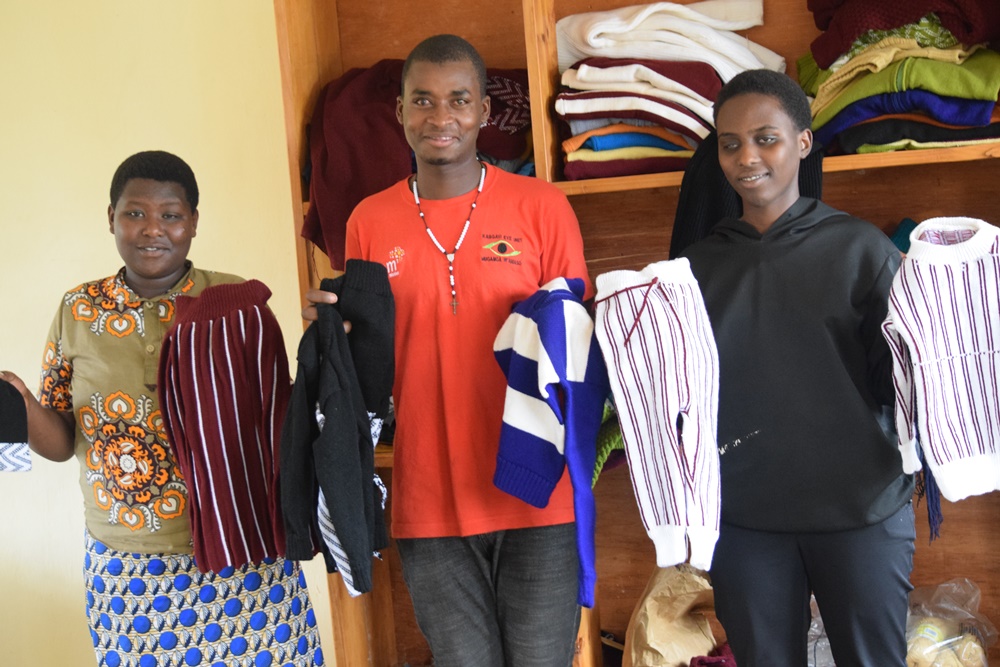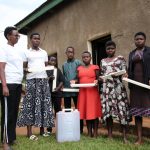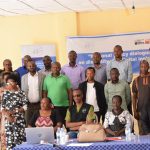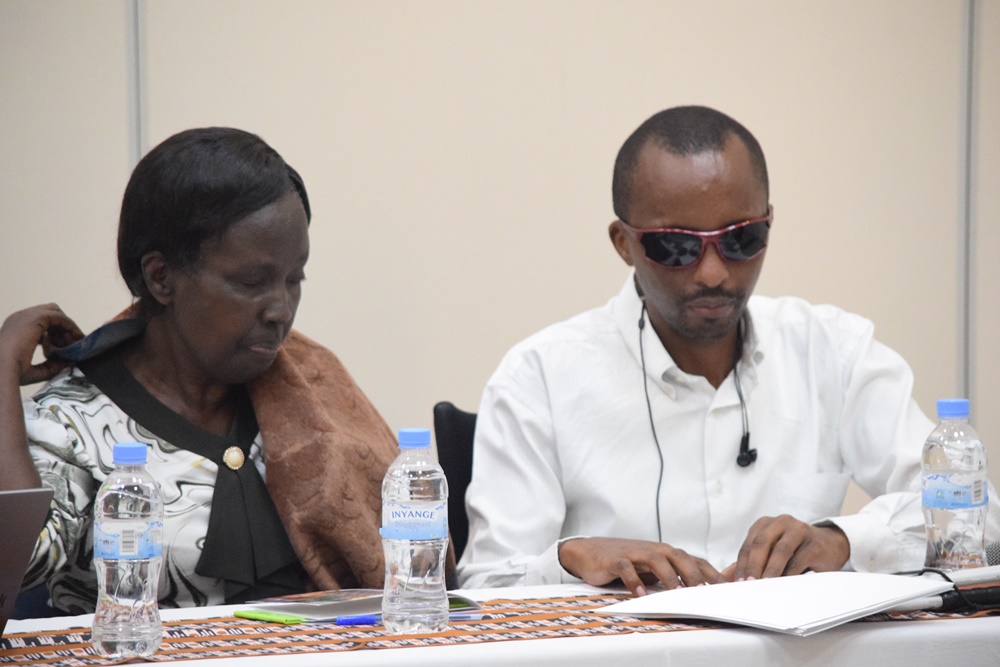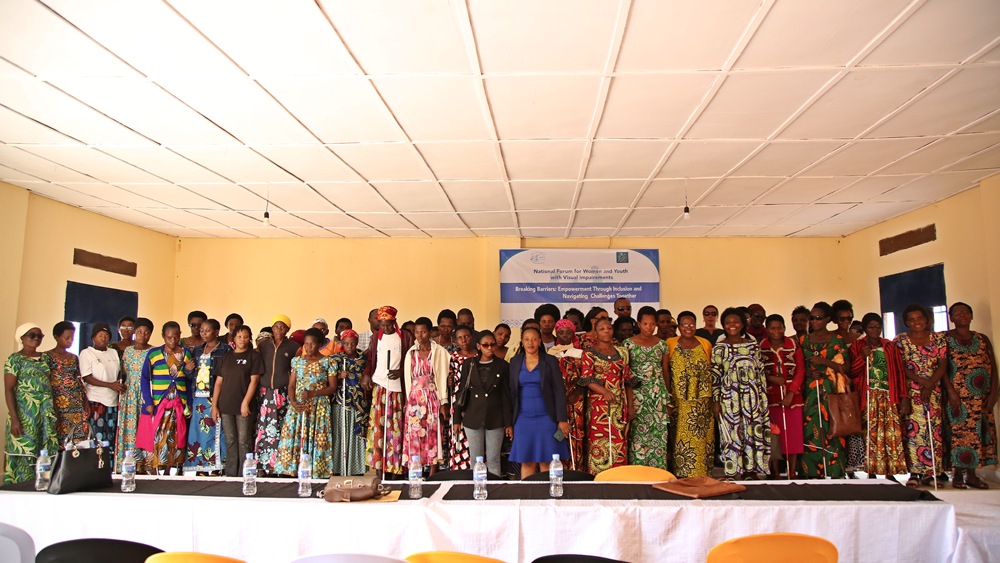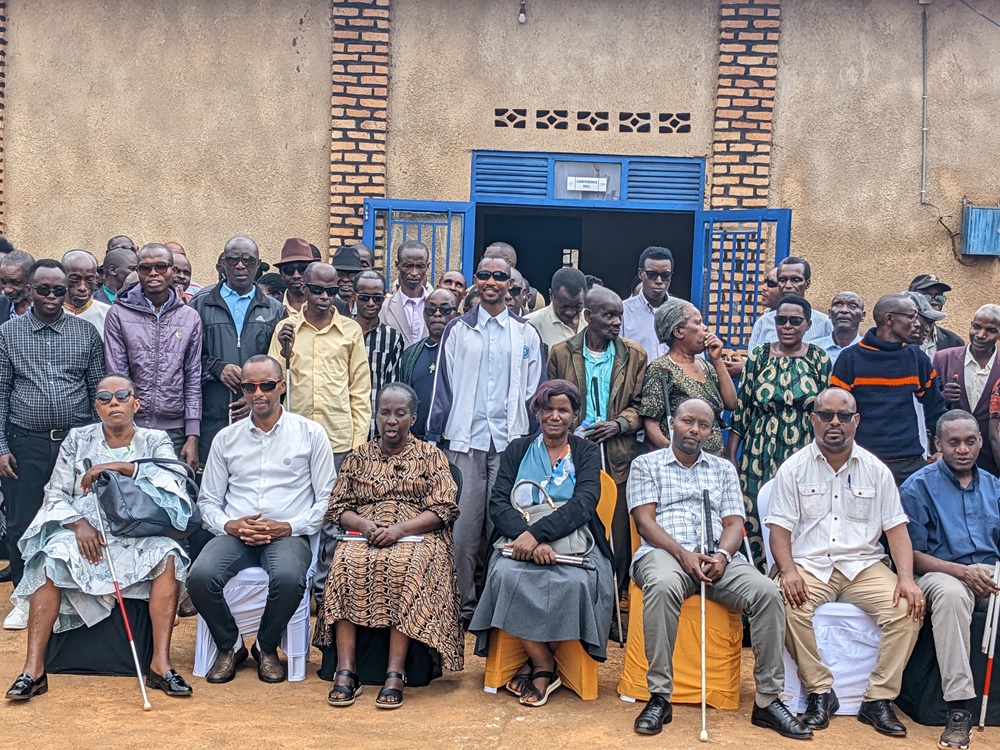Today, Rwanda Union of the Blind (RUB) speaks from the…
Empowering Visually Impaired Artisans: Knitwear Milestone at Masaka Resources Centre in Rwanda
A remarkable group of visually impaired artisans at the Masaka Resources Centre for the Blind (MRCB) in Rwanda are celebrating a new milestone: they have begun to receive casual jobs knitting school uniform sweaters. For them, these assignments are more than work; they are a sign that they are capable, skilled, and worthy of being trusted with employment.
Peninah NIYOBYOSE, a mother of two and Knitting Trainer at MRCB, described the experience as both empowering and motivating.
“The casual job of knitting sweaters for students we have done it twice this year. The first time, in July, we knitted 56 sweaters for a school in Nyamasheke District in just five days. The second, this month, was 100 sweaters for a school in Rubavu District,” she said.

“These opportunities show that people can see beyond our disability and recognize the quality and beauty of our work,” she added.
“Each product represents our determination, our creativity, and our desire to contribute meaningfully to society.” Theophile TWAGIRAYEZU, one of the knitters, highlighted the challenges they overcame in their work.
“Although some people assume that visually impaired individuals cannot perform such tasks, we take measurements using our hands and other senses to ensure every garment fits perfectly. We are ten students in total, capable of making 20 sweaters a day. In a month, we can produce 500 high-quality sweaters,” he said.
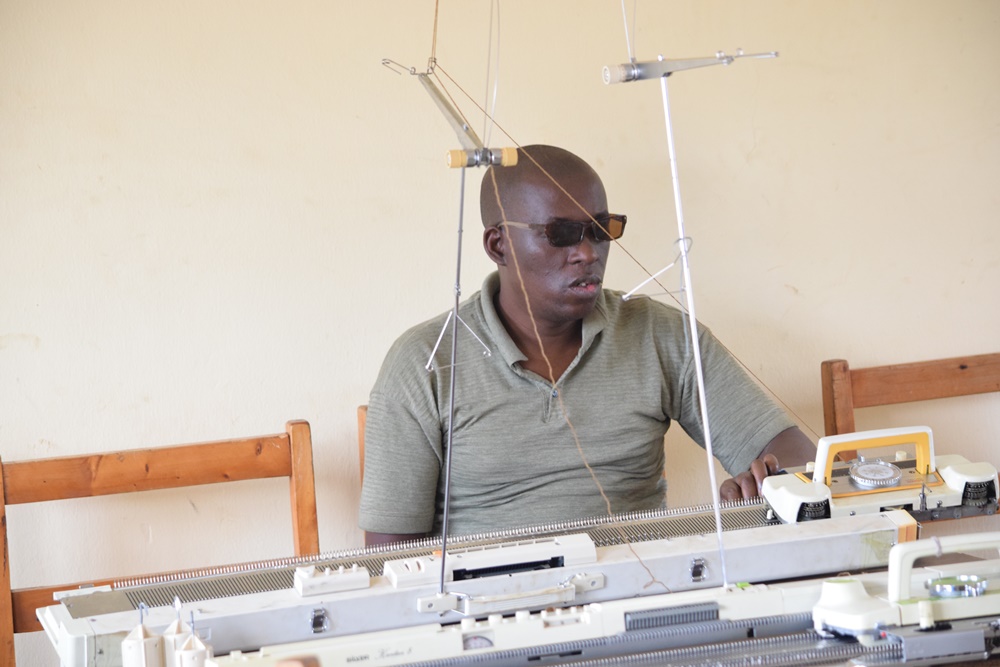
TWAGIRAYEZU also spoke about pricing and the opportunities these jobs bring. “For a young primary school student, a sweater costs Rwf 6,000, and for secondary students, Rwf 7,000. We want headmasters and school administrators to see that we are capable. Our work is high quality, durable, and we continuously improve it,” he emphasized.
Beyond knitting school uniforms, the Masaka Resources Centre for the Blind supports a wider range of handcrafted products, from exquisite fabrics to other knitted items. The initiative provides not only a platform for artisans to showcase their talents but also a vital source of income and empowerment.
By purchasing these products, customers directly contribute to the self-reliance and confidence of visually impaired artisans. For the artisans at Masaka, casual work like knitting school uniforms is more than just employment. It is a statement. It demonstrates that they are capable, reliable, and deserving of trust, challenging societal assumptions about disability and productivity.
